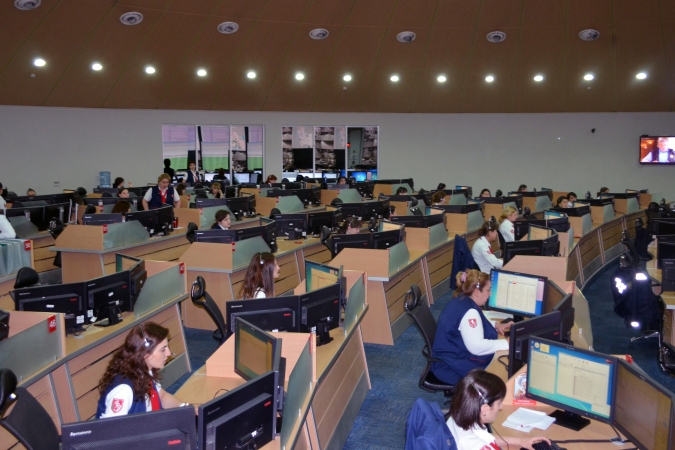In the words of Nino Zomaia: “I was the only one who could help the victim”
Date:
For the past two years, Nino Zomaia (name changed to preserve identity of the person) has worked as an operator at the Emergency and Operative Response Center 112, which is a phone number in Georgia that accepts emergency calls from anywhere in the country. The processed information is reported to the local police, fire/rescue service and ambulance centre.

“It was between 8 and 9 p.m. when the Emergency and Operative Response Center received the call. “This is 112. How may I help you?” but nobody replied. I only heard a woman telling someone, “No, I’m not calling anyone.” Twice I repeated the phrase “112 is listening to you.” Then I heard the strict and demanding tone of a man’s voice ordering her to give him the phone. She kept repeating, “Whom would I be calling? No one. I guessed that this was not an accidental call but was linked to some conflict, but we were disconnected before I could ask any additional questions.
I called back the incoming number. The call was answered but with silence. I just heard the woman crying and upset, with objects being smashed in the background. I realized that I would not get full and clear answers, but despite this, I learned the address of where this was happening. The woman was able to hear my voice, and I kept stressing that I needed to know her location. I asked her to answer my questions at least with a “Yes” or “No”. After she managed to affirm that she understood, I started probing: “Are you in the capital?” After much effort, she replied “No.”
I had to identify which specific region, but the call was cut off. When I called back, I could hear children crying. I asked the woman to refer to the region in any context. Despite the conflict, she managed to yell at the abuser, “…and in a region as large as Kakheti! It’s a shame, stop it!” Then she informed me about the district and village in the same way. I asked the woman to address him by his name and surname, which would make it possible to identify their exact location much more quickly.
Of course, the entire episode lasted a long time. The most important thing, though, was that she acted like a hero: she was protecting her children, coping with violence and listening to me at the same time. During one such attempt, she managed to identify the man: “How can you do that - ” and called him by his name and surname.
I now had sufficient information to identify the woman’s location and provide her with support. I told her that all the data were reported and that the respective agencies would come soon. We sent the criminal police and an ambulance. Eventually, the responders determined that this was a case of domestic violence in the family, and the woman sustained a physical injury.
This incident was a special case. I had acknowledged that I was the sole person able to help the victim at that time, and I was supposed to do it without causing any harm to her. Everything worked out well, and I am proud that I was able to do it”.